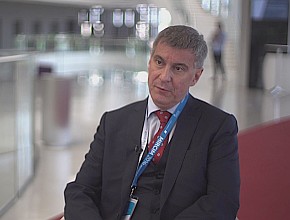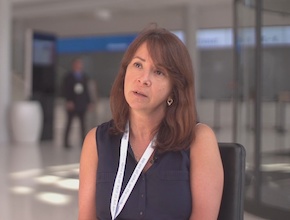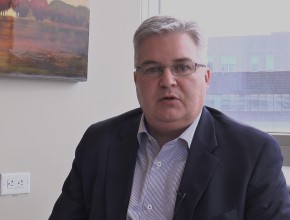Related McMaster Perspective episodes
Moayyedi P, Jaeschke R. Microbiome: The beginning of understanding.References
Ford AC, Gurusamy KS, Delaney B, Forman D, Moayyedi P. Eradication therapy for peptic ulcer disease in Helicobacter pylori-positive people. Cochrane Database Syst Rev. 2016 Apr 19;4:CD003840. doi: 10.1002/14651858.CD003840.pub5. Review. PubMed PMID: 27092708.Roman Jaeschke: Let’s switch gears. Probably part of our listeners or viewers are watching Downton Abbey. In one of the episodes the lord of the house collapsed while vomiting blood and then his stomach was resected. He presumably had peptic ulcer disease. I wonder what would be differently handled today versus a hundred years ago.
Paul Moayyedi: Like most things in medicine and gastroenterology, some things have not changed at all, others have changed dramatically, and this is an example of something that has changed dramatically. In that specific example, he would come to the hospital, he would have an endoscopy, not surgery, and we would usually clip or heated probe the ulcer and stop the bleeding. Much more importantly, we get to the cause of the bleeding, which – as I alluded to earlier [see: Microbiome: The beginning of understanding] – is this organism Helicobacter pylori, which as I said was discovered in the early 1980s. We now know that it is responsible worldwide for probably over 90% of all gastric and duodenal ulcers, the rest being caused by nonsteroidal anti-inflammatory drugs (NSAIDs), and a very small percentage is idiopathic – we still do not know [the cause]. Certainly in Downton Abbey’s day, the vast majority would be caused by H pylori and this could be treated by a simple course of antibiotics. Once treated, the person is at very low risk of getting an ulcer again. The number needed to treat in this setting is way less than 2, which is a very impressive, strong effect in stopping ulcer occurrence. We not only treat the bleeding but – more importantly – we stop this person from ever getting an ulcer again and the stomach would remain intact.
RJ: You mentioned the causes: H pylori, NSAIDs, or unknown. In these situations, the fairly common question is: How long to continue therapy with acid suppression in those different subpopulations?
PM: In the population in whom we do not know what the cause is and they have had a gastrointestinal (GI) bleed, I would suggest lifelong therapy with acid-suppressing medication. GI bleed is serious even in today’s world; it is associated with a 5% to 10% mortality. These drugs, acid-suppressing drugs, are cheap and very effective as well; again, the number needed to treat of around 2. The reason we would not do that rather than H pylori eradication in someone who is infected is that a course of antibiotics is even cheaper and safer, but certainly with the more serious gastric and duodenal ulcers long-term acid suppression is needed if a person has bled.
RJ: Even if it is associated with H pylori that was treated?
PM: No, treating H pylori if there were no other risk factors is enough, so they would not need long-term acid suppression. The majority of people who present with ulcer bleeding these days outside of the NSAIDs use is quite simple: antibiotics, and that is it.
RJ: There are situations when we use acid suppression in a prophylactic way without ongoing disease. I wonder if you could elaborate on what types of patients would use long-term acid suppression therapy.
PM: It is a very good question, Roman, and I do not think I have definitive answers for that. This is very much an ongoing area of debate. The challenge is that on the one hand, acid suppression is very effective, as I said, in preventing ulcers; in many prophylactic settings, we do have short-term randomized trials, such as in the case of NSAIDs, which have a very strong effect; they are relatively cheap these days and they seem to be very effective. The only problem is, of course, that proton pump inhibitors (PPIs) have been associated with all sorts of adverse events, such as pneumonia, heart disease, fractures, and more recently, chronic kidney disease and dementia. Many if not all these associations will probably be spurious, because sicker people tend to take PPIs and not enough attention is paid to the limitations of database research, but nevertheless you have got to take these things seriously and not prescribe medication where it may not be that helpful. It is all about the risks to the individual and we have not really defined that well.
My own personal practice is that you are very unlikely to die from an ulcer bleed these days if you are under 65 [years old]. More or less anyone under 65 – to me – gets no prophylaxis. There are, of course, exceptions, but it is rare. As you reach over 65, the mortality very dramatically increases from peptic ulcer disease, so the threshold for prescribing/coprescribing PPIs increases, even though in the elderly you want to reduce coprescription. For that group, if they are on NSAIDs and they have another risk factor, such as past history of ulcer, or they are on an anticoagulant – warfarin or a novel oral anticoagulant (NOAC) – then I would personally prescribe a PPI. As yet, it is not evidence-based, but there are trials ongoing from McMaster University that are designed to answer this question.
RJ: Thank you for this useful practical clinical hint. Thank you very much for your time. See you in the video.
This interview was recorded at the 2nd McMaster International Review Course in Internal Medicine in Kraków, Poland. To learn more, visit www.mircim.eu.
 English
English
 Español
Español
 українська
українська






